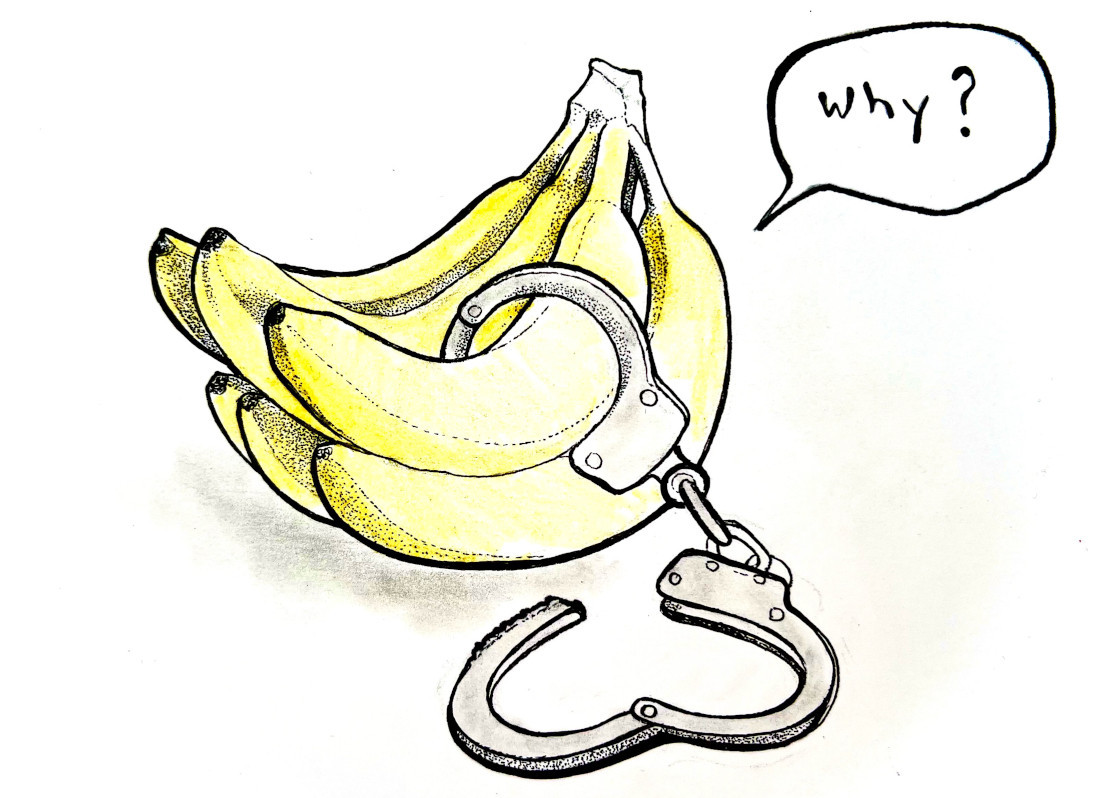Loss prevention at a cost
Do police officers in grocery stores protect communities or corporate profits?
As more Canadians struggle to afford groceries, the country’s supermarket chains are enjoying record profits. With this cost-ofliving crisis leading to an increase in shoplifting essential goods, some grocery stores are increasing security by hiring police officers. But some experts and civic organizations say this increase comes at the cost of community wellbeing.
Some officers with the Winnipeg Police Service (WPS) make extra money by working for private or corporate businesses through the Special Duty Policing Service. This service allows businesses to hire off-duty police officers outside their regular shift schedules to patrol their premises.
Rebecca Hume, a member of the organization Winnipeg Police Cause Harm, says a police presence in grocery stores doesn’t help people.
“In the worst case, (an encounter with a police officer is) an outright traumatizing experience for people going to the grocery store and being immediately met with a fully armed police officer,” they say.
In October 2022, the CBC reported an incident at Shoppers Drug Mart where three police officers racially profiled then forced an Indigenous woman to empty her pockets.
After the City’s 2023 budget passed on March 22, the WPS operating budget increased by $8.2 million to $281.3 million.
The Special Duty Policing Service charges $134.40 for a constable and $158.55 per hour for a staff sergeant. Businesses can pay an additional $37.80 per hour to have a police cruiser car. Officers work these shifts outside of their regular paid hours.
Dr. Kevin Walby, an associate professor in the University of Winnipeg’s criminal-justice department, says special-duty police officers are more common than many people realize.
“When you see police in the city, a lot of times they’re working paid duty, and they’re working for just the interest of the buyer. They’re not really that interested in serving the public or upholding law. They’re interested in making money,” he says.
According to the 2022 third-quarter WPS budget update, the Special Duty Policing Service generated $5.6 million in revenue with a forecasted year-end amount of $7.4 million.
The WPS generated more special-duty revenue in 2022 than 2020 and 2019. The 2021 totals were higher because of contracts to monitor vaccine clinics. The majority of this money goes directly to officers with the WPS gaining about $1.4 million in revenue.
The revenue increase in 2022 is due to the number of contract volumes at retail businesses, including grocery stores.
WPS officers are often stationed at Real Canadian Superstore and Shoppers Drug Mart locations. One Kenaston Real Canadian Superstore employee says they see police officers almost every day while working.
Loblaws Companies Limited didn’t respond to requests for how many stores contract police officers.
According to industry data covered by Sylvain Charlebois for Retail Insider, between $2,000 and $5,000 may be stolen from an average-sized Canadian grocery store each week. If a grocery store hires a constable at $134.40 an hour to patrol its store, they have already spent more than $2,000 by the end of a typical 16- hour workday.
When private security doesn’t curtail theft, Walby says grocery stores often resort to contracting special-duty police officers.
While police officers have the power of criminal law and the threat of violence and intimidation, they don’t have training in loss prevention to the same degree as private security guards, Walby says.
“It’s a real microcosm for policing, because there’s racial profiling, there’s violence, and then you just have police complaining about things, wishing things were different but not really adding a lot to safety or wellbeing for people at all,” he says.
Ultimately, Hume says grocery chains could better serve communities by directing their record profits to aid people who need it most.
“I would challenge any grocery store to not have cops out and instead use that amount of money toward food for folks who need it.”
In an email to The Uniter, the Winnipeg Police Service stated, “Any citizen wishing to report a negative interaction with police is encouraged to follow a civilian complaint process through LERA (the Law Enforcement Review Agency).” For more information, visit gov.mb.ca/justice/lera.
Published in Volume 77, Number 24 of The Uniter (March 30, 2023)








